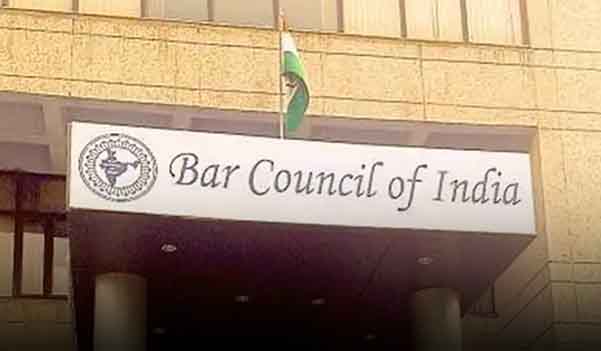The Bar Council of India (BCI) has issued a notification implementing stricter regulations for all Centers of Legal Education (CLEs) nationwide.
This notification, addressed to universities, law institutions, and students, introduces mandatory criminal background checks for law students, alongside declarations related to academic undertakings, employment status, and attendance adherence.
Prompted by judicial observations in specific cases, the BCI’s goal is to uphold the integrity and transparency of those entering the legal profession. The council has instructed law colleges and universities to immediately comply with these new guidelines.
Law students are now required to submit declarations concerning any ongoing or previous criminal cases, dual academic programs, and employment status during their LL.B. course. These declarations must be completed prior to the issuance of final marksheets and degrees.
Criminal Background Checks
Students are mandated to disclose any involvement in first information reports (FIRs), criminal cases, convictions, or acquittals. Institutions must notify the BCI of any such disclosures and await further instructions before awarding degrees. Students who fail to disclose such information truthfully will face severe disciplinary actions, including withholding of their degrees.
Simultaneous Degree Programs
Under Chapter II, Rule 6 of the Rules of Legal Education (2008), students are prohibited from enrolling in more than one full-time academic program concurrently with their LL.B. studies. Students must declare they have not been engaged in any other full-time degree programs during their legal education, although certain part-time certificate courses are permitted.
Employment Status and Attendance Compliance
Students are also required to declare their employment status and demonstrate adherence to the attendance norms established by the BCI Rules. Students found to be working without a No-Objection Certificate (NOC) during their LL.B. studies may face penalties, and law institutions are required to report such instances to the BCI, awaiting its approval before issuing degrees.
Biometric Attendance and CCTV Monitoring
The BCI has instructed law colleges to install biometric attendance systems for accurate tracking of student attendance. Additionally, institutions are required to install CCTV cameras in classrooms and other key areas, with footage being retained for a year to facilitate investigations regarding attendance or student conduct.
Apart from this notification, the BCI has also issued two additional directives: one regarding the need for BCI approval when offering dual or joint degree programs with foreign institutions, and another outlining the submission process for documents required to obtain provisional affiliation and comply with BCI Legal Education Rules and judicial guidelines.
(With inputs from agency)
Share your news, articles, deals, columns, or press releases with us! Click the link to submit and join our platform today.


